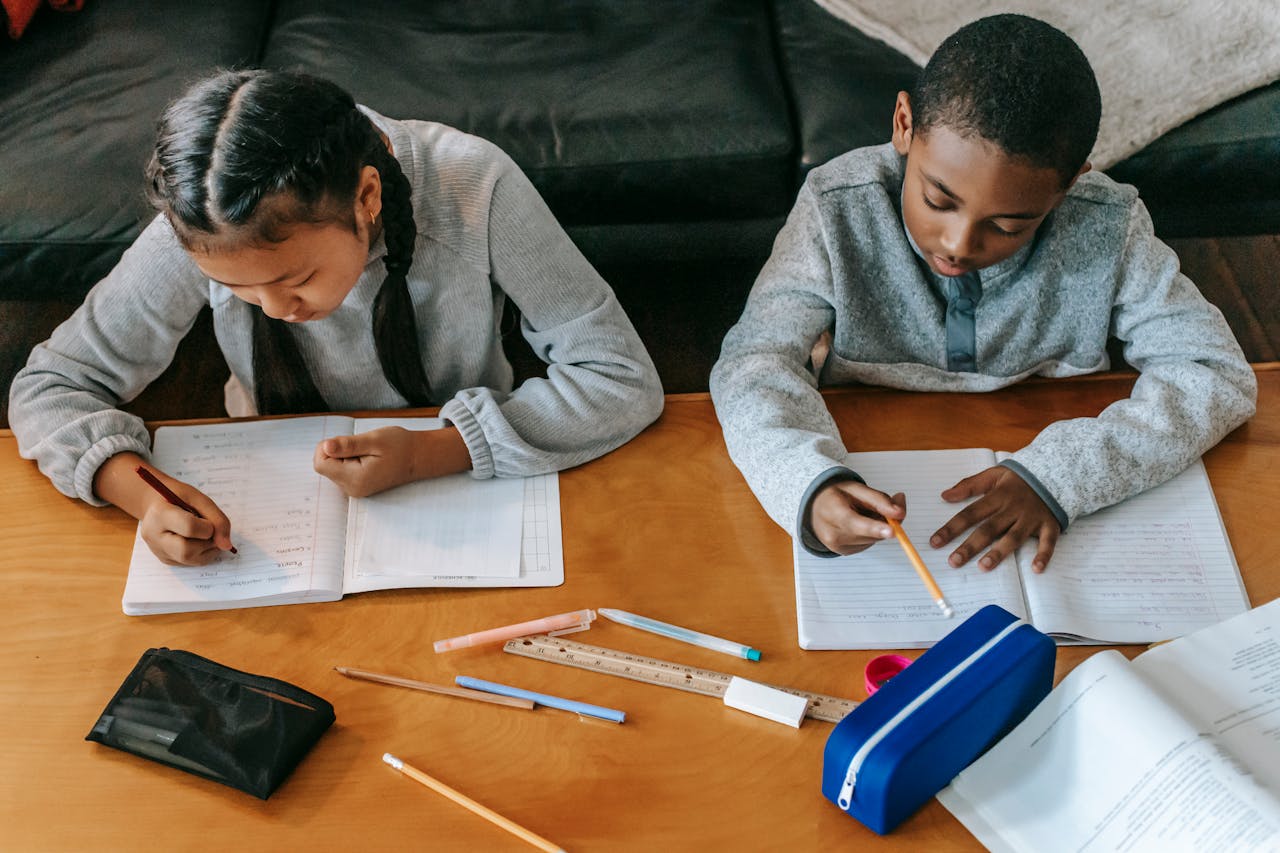There’s a lot of talk these days about bullying, the causes, and how to prevent it because it’s so pervasive in today’s society. Over 59% of U.S. teens said they’ve been bullied online alone. There can be very serious consequences of bullying—for everyone, but especially for kids—which is why it’s important to understand what bullying is, the circumstances under which it can occur, how to stop bullying, and what you can do to help a child who’s being bullied.
While it may be impossible to stop bullying just by creating a safe space at home, the following ideas and suggestions can help soothe a bullied child by creating a comforting and supportive home environment. That, in turn, can create more confidence and help children better cope with bullying if or when it occurs.
What is bullying?
We’ve all experienced teasing, taunting, and name-calling in our lives, but how do we know when bullying happens to kids and what do we do about it? The Merriam-Webster dictionary defines bullying as the “abuse and mistreatment of someone vulnerable by someone stronger, more powerful, etc.” and “the actions and behavior of a bully.” It goes on to define a bully as “one who is habitually cruel, insulting, or threatening to others who are weaker, smaller, or in some way vulnerable.”
Bullying can take many forms and there are many types of bullying, including:
- Verbal bullying
- Physical bullying
- Disability harassment
Parents of children with disabilities or special needs know that their kids can be singled out for their disability. - Online bullying
Online bullying is otherwise known as cyber bullying or cyberbullying. Much online bullying takes place on social media, but can also happen through text messaging, message boards, chat rooms, harassing web sites, and other digital spaces. Social media bullying in particular is a growing problem for today’s kids.
Signs that your kid is being bullied
Unfortunately, not all kids will admit to their parents that they’re being bullied. Sometimes it can seem embarrassing to them or the kid may be unsure about how you’ll react. Therefore, it’s important that you look out for the following signs that your child is being bullied:
- Not going to the bathroom at school. A lot of bullies attack in the bathroom, away from cameras and adults. Your bullied kid may start to avoid unsupervised activities and areas.
- Getting upset after a phone call, text, or email.
- Losing friends they previously had.
- Being more isolated and skipping activities that they used to enjoy. They may be spending more time alone in their room.
- Making negative statements about themselves and engaging in negative self-talk.
What to do if your child is bullied
Bullying can happen to anyone, but it’s particularly troubling for kids because they often don’t know how to handle the stress it causes or how to stand up to bullies. Even worse, bullied kids will sometimes hide what’s happening from their families, so it’s important for parents to know the signs of bullying, start a dialogue with their kids about what to do if they’re being bullied, and cultivate a home environment that makes kids feel safe and loved.
If your child is being bullied, here are a few actions you can take at home:
- To help prevent bullying and cyberbullying, talk to your kids about bullying before it happens. Let them know what bullying is and that’s it’s not acceptable to be a bully. Tell your kids to talk to you or another adult if they are being bullied or witness someone else being bullied.
- If your child is being bullied, stay calm. You may want to blow your top at first, but that could just escalate the problem and potentially cause more stress for your kid. Remaining calm and supportive will help your child feel safe.
- Listen to what your child has to say and ask questions to help gather as much information as possible before you take further action. You want to understand the situation and the “who, what, where, why, and how” of the circumstances surrounding it.
- Don’t retaliate against the bully or their family. Just like remaining calm, you want to be a model for your child and show them how to handle bullying without becoming a bully yourself.
- Teach your kid about how to react to a bully. Most bullies want to get a reaction out of their actions, but if your kid learns how not to react in a way that encourages the bully, they may just give up and back off.
- Monitor and supervise your kid’s digital presence and make sure they’re not being cyberbullied on social media. There are tools, software, toys, and equipment you can use to help prevent bullying, both online and off. Sites like Stopbullying.gov can guide you toward the resources you need to help support your bullied kid.
- Talk to school administrators and teachers who can help. It’s unfortunate that sometimes adults just don’t see bullying, even when it’s happening around them. Once these people are aware there’s a problem, however, they can take appropriate actions against the bully, while also keeping an eye out for continued abuse.
How to create a safe space at home for a bullied child
Bullied kids can oftentimes feel stressed out, anxious, and depressed. They may also withdraw from family and social activities, isolate themselves, and become fearful of otherwise everyday experiences. Creating a safe environment for kids can go a long way in helping bullied kids relax and thrive at home. This will bolster your kid’s confidence and help them become more resilient and adaptable when it comes to being bullied online or outside the home.
- Create a designated area where your kid can retreat. It could be their bedroom, an outdoor play area, a reading nook, a treehouse, or just a temporary homemade fort in your family room.
- Encourage your kid to express themselves beyond just talking with you. Give them a journal and a fun pen to start writing, or set up a space in your house to create art.
- Identify the things your kids are good at and encourage them to explore those talents. Whether it’s music, sports, art, drama, or another interest, make sure your home is set up in a way that encourages your kid to pursue their passions.
- Provide your kids with tools and equipment to help deal with bullying. Stress balls and fidget spinners can help with anxiety, books can help kids understand and identify their feelings, and play areas where they can let off steam through physical activity are all helpful.
- If your child is being cyberbullied, move computers out of your kid’s bedroom and put it in a common space like a family room or den. That way, you can keep a better eye on your kid’s online activities.
- For parents of kids with disabilities, make sure your child has social support and an outlet that’s supportive of their abilities and talents.
Facing bullying is a daunting task for any parent, but with these tips and advice in hand, you’ll be able to increase your child’s confidence at home and help them to better cope with bullying.




